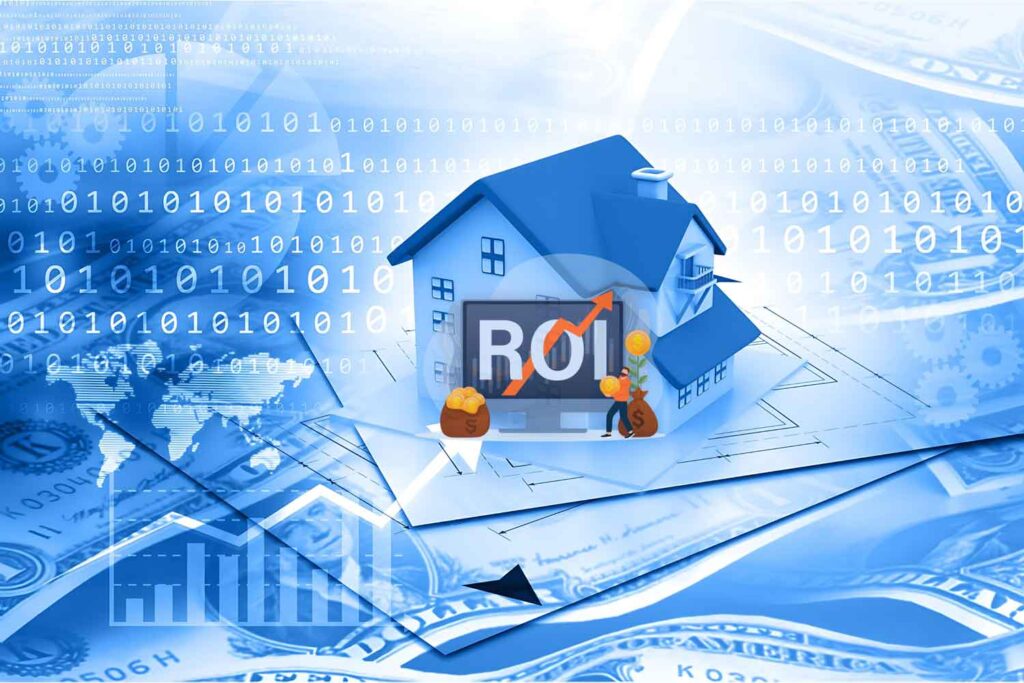What is ROI in Real Estate?
Return on Investment (ROI) in real estate is a measure of the profitability of an investment property. It calculates the percentage return on the money invested in the property. ROI is crucial for investors to determine the potential gains from their real estate investments.
Importance of ROI in Real Estate Investments
Understanding ROI helps investors make informed decisions. It allows them to compare different properties and investment strategies. A high ROI indicates a profitable investment, while a low ROI may suggest the need for reevaluation.

How to Calculate ROI in Real Estate
Calculating ROI Using the Cost Method
The cost method involves dividing the net profit by the total cost of the investment. This method is straightforward and provides a clear picture of the investment’s profitability.
Calculating ROI Using the Out-of-Pocket Method
This method focuses on the actual cash invested. It is useful for financed purchases where the investor wants to see the return on their cash investment.
Real Estate ROI on a Cash Purchase
For cash purchases, the ROI calculation is simpler as it involves only the purchase price and net profit.
Real Estate ROI on a Financed Purchase
Financed purchases require considering mortgage payments and interest rates. The ROI calculation includes these additional costs.

Factors Impacting Real Estate ROI
Purchase Price
The initial cost of the property significantly impacts ROI. A lower purchase price can lead to a higher ROI if the property generates substantial income.
Interest Rates
Interest rates affect the cost of financing. Lower interest rates reduce mortgage payments, increasing the net profit and ROI.
Location
Location is a critical factor in real estate ROI. Properties in prime locations tend to have higher rental income and appreciation rates.
Demographics
Demographics influence demand for rental properties. Areas with growing populations and strong job markets typically offer better ROI.
Materials
The quality of materials used in construction affects maintenance costs and property value. High-quality materials can lead to higher ROI.
Type of Property
Different property types (residential, commercial, industrial) have varying ROI potentials. Residential properties often provide steady income, while commercial properties may offer higher returns.
Investment Strategy
The chosen investment strategy (buy-and-hold, fix-and-flip, rental) impacts ROI. Each strategy has its own risk and return profile

